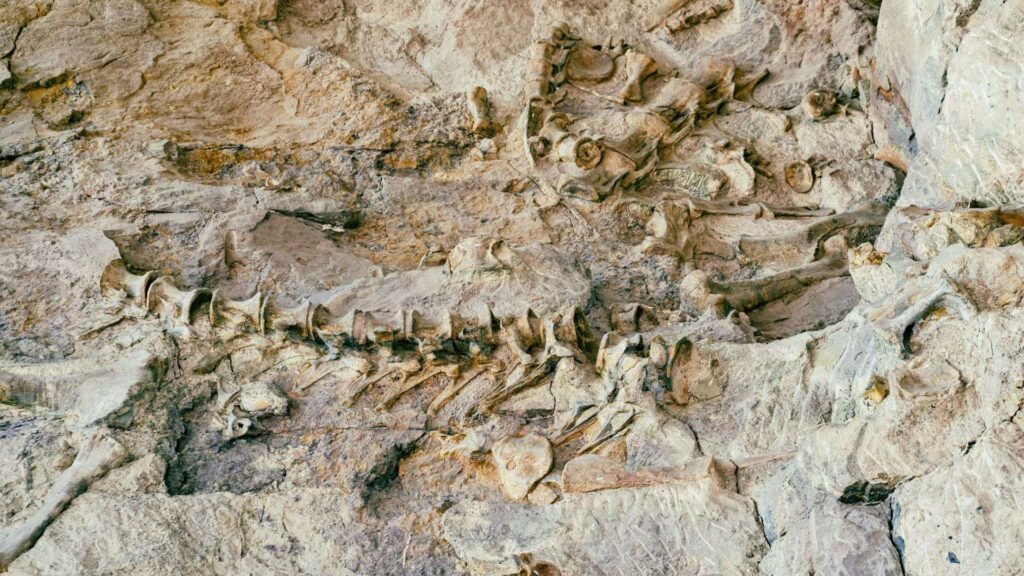Imagine you’re strolling along a serene beach in Australia, the waves gently lapping at your feet. Suddenly, you stumble upon a curious-looking rock embedded in the sand. As you examine it closely, you realize it’s not just any rock—it’s a fossil, a tangible piece of the Earth’s ancient history. The question arises: Can you keep this remarkable find? This article delves into the intricate relationship between fossil discoveries and Australian law, revealing the dos and don’ts when it comes to these ancient treasures.
The Fascination with Fossils

Fossils have always captured the human imagination. These remnants of ancient organisms offer a glimpse into a world long gone, a time when creatures roamed the Earth in forms that seem almost mythical to us today. For many, finding a fossil feels like unearthing a hidden treasure, sparking endless curiosity and wonder. Yet, beneath this allure lies a complex interplay of scientific, ethical, and legal considerations. As we marvel at these ancient relics, it’s crucial to understand the responsibilities that come with their discovery.
Understanding Fossils: Nature’s Time Capsules

Fossils are much more than mere rocks. They are nature’s time capsules, preserving the remains of organisms that lived millions of years ago. From tiny marine creatures to colossal dinosaurs, fossils provide invaluable insights into the Earth’s evolutionary history. Through the study of fossils, scientists can reconstruct past environments, track evolutionary changes, and even predict future ecological shifts. This scientific significance underscores the importance of treating fossils with care and respect.
Australia’s Rich Fossil Heritage

Australia is a land of diverse landscapes and rich geological history, making it a haven for fossil enthusiasts. The continent’s unique fossil sites, such as Riversleigh and Naracoorte, are renowned for their abundance of well-preserved specimens. These sites have contributed significantly to our understanding of prehistoric life, offering glimpses into ecosystems that thrived millions of years ago. However, this rich heritage also brings with it the responsibility to protect and preserve these irreplaceable resources.
The Legal Landscape: What the Law Says

In Australia, the ownership and collection of fossils are governed by a complex web of laws and regulations. These laws vary across different states and territories, reflecting the diverse approaches to fossil conservation. Generally, fossils found on public land are considered public property, and their collection is strictly regulated. This means that even if you find a fossil, you may not be legally entitled to keep it without proper authorization. It’s essential to familiarize yourself with the specific laws in your region to ensure compliance.
The Role of Permits and Permissions

Obtaining permission to collect fossils is a crucial step in the legal process. In many cases, a permit is required to legally collect fossils, especially from protected sites. These permits are typically issued by government agencies responsible for natural heritage and conservation. They ensure that fossil collection is conducted in a manner that preserves scientific value and minimizes environmental impact. By adhering to these regulations, individuals can contribute to the responsible stewardship of Australia’s fossil heritage.
Private Land and Fossil Ownership

The rules surrounding fossil collection on private land are somewhat different. In general, fossils found on private property belong to the landowner. However, this does not grant unrestricted rights to sell or export fossils, as broader legal and ethical considerations still apply. Landowners are encouraged to collaborate with paleontologists and museums to ensure that significant finds are documented and preserved for scientific study. This collaborative approach benefits both landowners and the scientific community.
The Ethical Dimension: Balancing Curiosity and Conservation

While the thrill of discovering a fossil is undeniable, it’s vital to consider the ethical implications of fossil collection. Each fossil carries scientific value that extends beyond personal ownership. By removing fossils from their natural context, we risk losing critical information about past ecosystems. Responsible fossil collection involves striking a balance between satisfying personal curiosity and contributing to the broader scientific understanding of Earth’s history.
The Role of Museums and Institutions

Museums and scientific institutions play a pivotal role in preserving and studying fossils. These entities provide a safe haven for fossils, where they are carefully cataloged, studied, and displayed for public education. When individuals find fossils, donating them to museums can ensure their long-term preservation and accessibility for research. Museums often collaborate with the public, offering opportunities to participate in fossil-related activities and workshops, fostering a deeper appreciation for paleontology.
Fossil Hotspots: Where to Discover

For those eager to explore fossil-rich areas, Australia offers a multitude of hotspots. Sites like the Flinders Ranges, Lightning Ridge, and the Great Ocean Road are known for their abundant fossil deposits. Visiting these locations provides an opportunity to witness the Earth’s history firsthand and marvel at the remnants of ancient life. However, it’s crucial to respect site-specific regulations and guidelines to ensure the protection of these valuable resources for future generations.
Embracing the Journey: A Call to Explore Responsibly

The allure of fossils is undeniable, drawing us into a journey through time and space. As we embark on this adventure, it’s essential to approach it with a sense of responsibility and respect. By understanding and adhering to the legal and ethical guidelines surrounding fossil collection, we can ensure that these ancient treasures continue to inspire and educate. Whether you’re a seasoned fossil hunter or a curious beginner, the key lies in exploring responsibly, preserving the past while paving the way for future discoveries.



